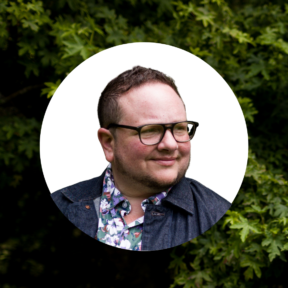JOIN for Justice Names Jessica Greenblatt Seeley and Meir Lakein as Co-Executive Directors
A vital shift toward shared, representative leadership for a just and equitable future
FOR IMMEDIATE RELEASE
Contact: Kat Macias, kmacias@joinforjustice.org, 617-350-9994 x107
March 7, 2022 — JOIN for Justice (JOIN), a national nonprofit that trains Jewish leaders to organize for justice and equity, announced today that Jessica Greenblatt Seeley and Meir Lakein have been named the organization’s new Co-Executive Directors. Jess and Meir will succeed Karla Van Praag who successfully led the organization through a period of national expansion and great growth from 2007 until 2022. The search for JOIN’s new leadership was led by DRG Search, a talent advisory group that conducts executive searches for nonprofits all over the world.
“I am thrilled that JOIN will be led by Jess and Meir,” said Karla Van Praag. “They are extraordinary leaders whose complementary skills and experience will add depth, richness, and vitality to our work at an important moment in history. Jess and Meir are both so knowledgeable, committed, and visionary. They make a powerful team.”
“Establishing a co-leadership model embodies JOIN for Justice’s commitment to relationships and representation as core ingredients for building a just and equitable world,” JOIN’s Board President Phil Rosenblatt stated. “I am so excited about what Jess and Meir will be able to do together to help JOIN grow and thrive.”
Jess brings nearly two decades of experience as a visionary leader for environmental and climate justice and she is a champion for building sustainable and equitable food systems. Most recently, she served as the Program Director for the Core Fellowship of the Environmental Leadership Program (ELP) — a nationally-renowned organization that has trained more than 2,000 of the United States’ emerging leaders in environmental and social change. A Korean American Jew, Jess is energized by building relationships, the power of community, and deepening her commitments to racial justice.
Jess shared, “I am honored to be stepping into this new role as co-executive director of JOIN for Justice, alongside Meir. I believe deeply in equitable leadership structures, and I love that the model of shared leadership aligns with JOIN’s approach to effecting transformative change. JOIN’s mission and core values deeply resonate for me — as an activist, a parent, and as a Jew of Color. I’m looking forward to training Jewish leaders across the U.S. who have enormous potential to mobilize their own communities for justice and equity. At a time in the world marked by so much brokenness — racism, climate change, health inequities, and much more — the work of JOIN has never felt more important, and I am excited to be a part of it.”
Meir has been the Director of Organizing at JOIN for Justice since 2010 and has worked as a professional community organizer for over 30 years. The architect of JOIN for Justice’s Fellowship for Clergy, Meir has trained over one thousand rabbis to be organizers for change, and has provided hundreds of consultations to synagogues and Jewish organizations nationwide. Regarded as a mentor for a generation of young organizers and rabbis, he has shaped a new model of Jewish leadership that is rooted in relationships, humility, and collective equity. An Orthodox Jew, Meir has been influenced by synagogues, Jewish day schools, and other Jewish institutions and believes in the role that they can play in the march towards liberation. Prior to his work at JOIN, Meir organized numerous and diverse cultural, socio-economic, and faith-based communities around issues such as housing justice, job training, education, drug treatment, and health care.
“I feel honored to partner with Jess to deepen JOIN’s impact as a leader in the field of Jewish social justice,” said Meir. “As Jews and Jewish communities, we have so much work that we’re called to do in order to heal a world that can be so broken and oppressive. We are called to lift up the leadership of those who have so often been marginalized, and to strive to be the communities we dream of being. JOIN’s adeptness in the art of organizing, its belief in people’s ability to be the change agents we need, and its deep grounding in Jewish wisdom establish JOIN as the organization equipped to help our Jewish communities. I continue to be on a learning journey with JOIN, and I know that my partnership with Jess will strengthen our work as a whole.”
Rabbi Jonah Pesner, a former board president of JOIN and the Director of the Religious Action Center (RAC) of Reform Judaism shared, “JOIN is a powerful catalyst for new expressions of Jewish leadership rooted in justice — within and beyond Jewish life.” He continued, “Addressing inequities and injustices in today’s world requires the right mix of leading with one’s head, heart, and hands. Meir and Jess embrace that kind of authentic leadership, and I am excited about the work they will champion together on the national stage and to continue to collaborate in any possible way.”
Jess and Meir will begin their work as co-executive directors of JOIN for Justice on March 15, 2022. Meir is based in Massachusetts and Jess is based in Pennsylvania.
About JOIN for Justice
JOIN for Justice: The Jewish Organizing Institute and Network (JOIN) is a national organization whose mission is to shape the field of Jewish leaders organizing for justice, both inside and outside of Jewish life in the United States. Founded in 1998 in Boston, the organization now has a national presence and focuses on three key constituencies: Jewish communal leaders including clergy and seminarians; Jewish leaders organizing for social justice; and grassroots Jewish groups such as synagogues and Jewish justice groups. Through its year-long Jewish Organizing Fellowship for young adults, a fellowship for Jewish clergy, and an array of online courses for Jews of Color, Jews with disabilities, and other communities, JOIN for Justice is training thousands of people to take action on a wide range of social justice issues. In doing so, JOIN is cracking open new possibilities for how Jewish leadership manifests today.
Learn more: https://www.joinforjustice.org/
About Jess Greenblatt Seeley
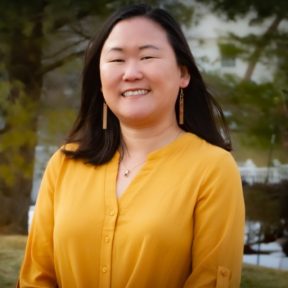 Jess Greenblatt Seeley (she/her/hers) is a seasoned activist, organizer, and trainer with nearly two decades of experience leading national nonprofit organizations. Most recently, she served as the Director of Core Fellowship Programs for the Environmental Leadership Program (ELP) — a nationally-renowned organization that has trained more than 2,000 of the United States’ emerging leaders in environmental and social change. Previously, Jess worked extensively in the food justice and local food system movement. She served as the Executive Director of the FoodRoutes Network, Director at Pennsylvania Certified Organic, and worked on her late husband’s sustainable grass-based dairy farm business in North Central Pennsylvania. Her contributions as a woman in agriculture were featured in Temra Costa’s 2010 book, Farmer Jane: Women Changing the Way We Eat.
Jess Greenblatt Seeley (she/her/hers) is a seasoned activist, organizer, and trainer with nearly two decades of experience leading national nonprofit organizations. Most recently, she served as the Director of Core Fellowship Programs for the Environmental Leadership Program (ELP) — a nationally-renowned organization that has trained more than 2,000 of the United States’ emerging leaders in environmental and social change. Previously, Jess worked extensively in the food justice and local food system movement. She served as the Executive Director of the FoodRoutes Network, Director at Pennsylvania Certified Organic, and worked on her late husband’s sustainable grass-based dairy farm business in North Central Pennsylvania. Her contributions as a woman in agriculture were featured in Temra Costa’s 2010 book, Farmer Jane: Women Changing the Way We Eat.
Jess’s personal leadership style is firmly grounded in empathy, relationship-building, and a commitment to an equitable future for generations to come. She is a skilled network weaver and facilitator both online and on land, and is excited to return to a world where we can safely convene and hug. Jess is a Korean American Jew, first-generation college graduate, widow, parent, and partner. She is energized by building relationships, the power of community, and deepening her commitments to racial justice. Jess firmly believes that Black people, Indigenous people, and people of color must have clear pathways to leadership to equitably address the world’s social, political, and environmental issues. Jess lives in Pennsylvania with her husband, Kevin, their three children, and a large furry dog.
About Meir Lakein
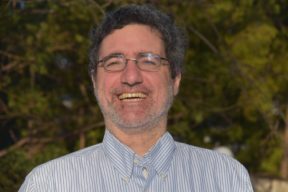 Meir Lakein (he/his/him) is a visionary community organizer with more than 30 years of experience mobilizing communities at the intersections of social justice and Jewish life. From 2011 to 2022, Meir was the Director of Organizing at JOIN for Justice and, during that time, he created JOIN for Justice’s Fellowship for Clergy. He has trained over one thousand rabbis to be organizers for change, and has provided hundreds of consultations to synagogues and Jewish organizations nationwide. Regarded as a mentor for a generation of young organizers and rabbis, Meir has shaped a new model of Jewish leadership that is rooted in relationships, humility, and collective equity. Prior to coming to JOIN, Meir served as the lead organizer for the Jewish Community Relations Council of Greater Boston, organizing thousands of adults and teens in 14 synagogues to identify their common values and interests, develop a common story and mission, and take action to live their values and defend their interests — both in the community around public issues and within their own institutions. He also worked as the lead organizer of the Brockton Interfaith Community, a coalition of 25 churches and synagogues that won major victories in areas such as home ownership, prescription drugs, nursing home care and employment, and certification for immigrant nurses. Meir has experience building powerful organizations with homeless people in Connecticut and with Mizrachi, Russian, and Arab public housing tenants in Israel. His work and writing have been featured in myriad publications.
Meir Lakein (he/his/him) is a visionary community organizer with more than 30 years of experience mobilizing communities at the intersections of social justice and Jewish life. From 2011 to 2022, Meir was the Director of Organizing at JOIN for Justice and, during that time, he created JOIN for Justice’s Fellowship for Clergy. He has trained over one thousand rabbis to be organizers for change, and has provided hundreds of consultations to synagogues and Jewish organizations nationwide. Regarded as a mentor for a generation of young organizers and rabbis, Meir has shaped a new model of Jewish leadership that is rooted in relationships, humility, and collective equity. Prior to coming to JOIN, Meir served as the lead organizer for the Jewish Community Relations Council of Greater Boston, organizing thousands of adults and teens in 14 synagogues to identify their common values and interests, develop a common story and mission, and take action to live their values and defend their interests — both in the community around public issues and within their own institutions. He also worked as the lead organizer of the Brockton Interfaith Community, a coalition of 25 churches and synagogues that won major victories in areas such as home ownership, prescription drugs, nursing home care and employment, and certification for immigrant nurses. Meir has experience building powerful organizations with homeless people in Connecticut and with Mizrachi, Russian, and Arab public housing tenants in Israel. His work and writing have been featured in myriad publications.
A white Orthodox Jew, Meir has been influenced by synagogues, Jewish day schools, and other Jewish institutions and believes in the role that they can play in the march towards liberation. He lives in Massachusetts with his wife and two sons.
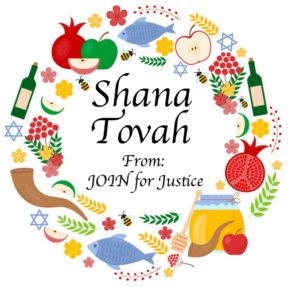




 Jess Greenblatt Seeley (she/her/hers) is a seasoned activist, organizer, and trainer with nearly two decades of experience leading national nonprofit organizations. Most recently, she served as the Director of Core Fellowship Programs for the Environmental Leadership Program (ELP) — a nationally-renowned organization that has trained more than 2,000 of the United States’ emerging leaders in environmental and social change. Previously, Jess worked extensively in the food justice and local food system movement. She served as the Executive Director of the FoodRoutes Network, Director at Pennsylvania Certified Organic, and worked on her late husband’s sustainable grass-based dairy farm business in North Central Pennsylvania. Her contributions as a woman in agriculture were featured in Temra Costa’s 2010 book,
Jess Greenblatt Seeley (she/her/hers) is a seasoned activist, organizer, and trainer with nearly two decades of experience leading national nonprofit organizations. Most recently, she served as the Director of Core Fellowship Programs for the Environmental Leadership Program (ELP) — a nationally-renowned organization that has trained more than 2,000 of the United States’ emerging leaders in environmental and social change. Previously, Jess worked extensively in the food justice and local food system movement. She served as the Executive Director of the FoodRoutes Network, Director at Pennsylvania Certified Organic, and worked on her late husband’s sustainable grass-based dairy farm business in North Central Pennsylvania. Her contributions as a woman in agriculture were featured in Temra Costa’s 2010 book,  Meir Lakein
Meir Lakein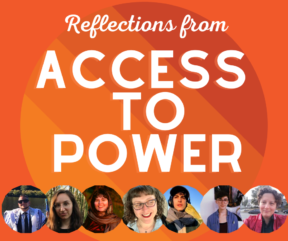
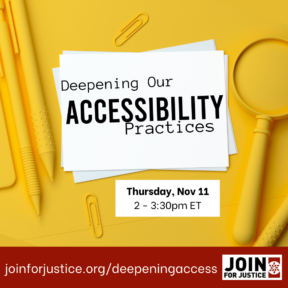
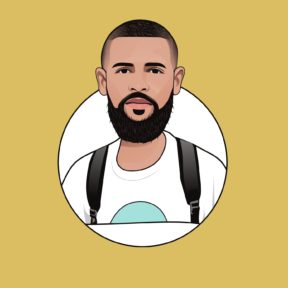 Dustin Gibson‘s work addresses the nexus between race, class, and disability. He’s worked on-the-ground with Centers for Independent Living (CIL) in Southwest PA with a focus on deinstitutionalization and youth self-determination. His work in the national CIL network supported youth peer support networks and policing/incarceration + disability.
Dustin Gibson‘s work addresses the nexus between race, class, and disability. He’s worked on-the-ground with Centers for Independent Living (CIL) in Southwest PA with a focus on deinstitutionalization and youth self-determination. His work in the national CIL network supported youth peer support networks and policing/incarceration + disability. 